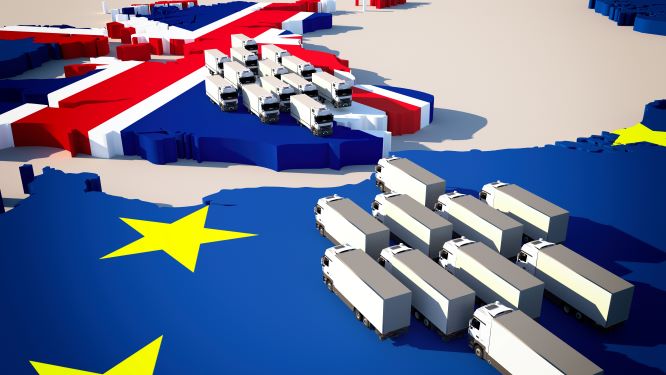Enjoying huge growth in the last few years, the UK’s CBD industry is certainly a force to be reckoned with nowadays. Worth around £300 million, its va
Enjoying huge growth in the last few years, the UK’s CBD industry is certainly a force to be reckoned with nowadays. Worth around £300 million, its value is expected to triple by 2025 as cannabis products become increasingly embraced by Brits. However, as is the case across many sectors, Brexit has thrown a massive spanner in the works for the industry, impacting things like shipping, medical access and Novel Food regulations.
First though, you might be wondering what CBD (cannabidiol) actually is. Well, the chemical compound is extracted from cannabis plants, and when combined with oil can be consumed, potentially providing multiple health benefits. Studies have shown that CBD can reduce anxiety, improve sleep and offer positive dermatological effects, which is why it is sometimes used in skincare products. CBD is legal in the UK, which according to UK seller Dragonfly CBD, is ‘because it is not psychotropic.’ In other words, it is legal because it does not contain THC, another cannabinoid. ‘THC [is what] creates the high effect for which cannabis has become notable’, says Dragonfly.
Now that’s cleared up, let’s get into how Brexit has affected the CBD industry.
Huge shipping disruption
Brexit means UK businesses must navigate through new customs declarations, forms and checks when moving products in and out of the EU, which has caused huge disruption. And this has a particularly unwelcome impact on UK CBD companies considering the long-standing British laws on the relationship between hemp cultivation and CBD extraction. Hemp is a type of cannabis plant that CBD comes from. Although it is legal to grow it in the UK, it is illegal to use UK-grown hemp for CBD extraction. In other words, the production, sale, and use of CBD products is legal in the UK, yet extracting the compound from hemp is not. As such, British companies have no choice but to import CBD from outside the UK, and as the country’s biggest trading partner is the EU, it’s no surprise that many get it from the bloc.
However, even pre-Brexit, UK CBD companies worried that products imported from Europe may be held up or delayed in the system somehow. The border authorities have had an unpredictable and inconsistent approach to CBD products like hemp, and Brexit will only make this more difficult. Reports from the CIPS (Chartered Institute of Procurement and Supply) have found that ‘60% of companies transporting goods into the UK from the EU had faced delays in the past three weeks’ with ‘stringent new paperwork introduced at customs as a result of Brexit the biggest sticking point’. It’s clear then that customs declarations are a major source of inconvenience under the current post-Brexit trade deal. As such, many UK companies may be forced to look outside of the EU to secure the CBD they need.
No access to medical cannabis
Following Brexit, the UK government has stated CBD prescriptions issued in the UK can no longer be lawfully dispensed in an EU member state. In practice, this means that those with medical conditions — such as severely epileptic children — reliant on medical cannabis are unable to access the treatment they need considering the supply chain is based in the Netherlands.
With private medical cannabis prescriptions costing up to £2,500 per month, and less than 10% of those needing it getting it from the NHS, many of these families are forced to solicit charitable donations. End Our Pain, a charity devoted to helping families get access to medical cannabis, commented on the situation: ‘The termination of medical cannabis supply from the Netherlands to the UK [due to Brexit] is a matter of life and death for these children. It’s imperative that the government act now to help reach a solution and help these families’.
With the Dutch government agreeing to provide a supply until July, there has been a reprieve. But the fight is not over for families struggling to find a solution once this period ends.
CBD will be classified as a Novel Food in the UK
Novel foods are defined as those that ‘have not been consumed to a significant degree by humans in the EU before 15 May 1997’. They tend to be newly developed, innovative foods made using new technologies and production processes. Within the EU, companies that didn’t have a Novel Foods application validated by the end of March now risk having their products removed from shelves. If it is not categorised as a Novel Food, it is assumed to be a narcotic.
While CBD was initially granted Novel Food status by the European Commission (EC), they later froze all applications because it was still undecided whether CBD should be considered a drug or not. Although only preliminary and for precaution, the EC’s decision has been a devastating blow for the EU CBD market. However, as the UK Food Standards Agency (FSA) has its own Novel Food authorisation process, CBD businesses in Britain can continue trading if they obtain Novel Food status. In other words, Brexit has given UK-based CBD companies an advantage over their EU counterparts.



















































































































COMMENTS